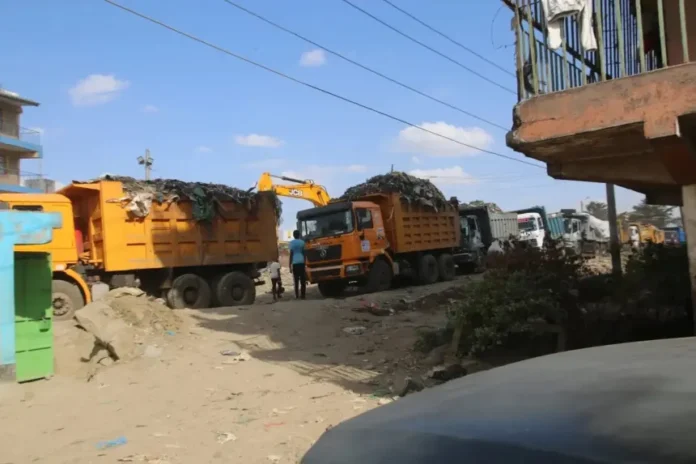Kenyans risk hefty fines or jail time for failing to sort their household waste, following the enforcement of the Sustainable Waste Management Act, 2022. The law introduces strict penalties aimed at transforming how the country handles waste and promoting environmental conservation.
According to the Act, failure to separate household waste into organic and non-organic categories could attract a fine of up to Sh20,000 or a jail sentence of up to six months. The National Environment Management Authority (NEMA) has warned that Kenyans must begin taking personal responsibility for their waste.
“It is our responsibility to protect and conserve our environment for our survival. This starts with you at the household level when you segregate waste,” said NEMA Director General, Mamo Mamo.
The Act is a critical step in transitioning Kenya from a linear waste management model to a circular one, where waste is minimized and materials are reused or recycled. Under the new framework, only 5% of waste will go to landfills. The rest will be incinerated (5%), recycled (30%), or turned into manure (60%).
To support implementation, counties have two years to draft their own waste management regulations in consultation with the national government, the public, and relevant stakeholders. Counties will also be required to establish material recovery facilities for final sorting, composting, and recycling.
The Act also introduces a national color-coded waste bin system:
• Green bins for organic (wet) waste,
• Black bins for general waste,
• Blue bins for recyclable (dry) materials like glass.
Hazardous waste will be handled under existing environmental laws due to its potential risk to human health and the environment.
All waste handlers, including transporters of segregated waste, must be licensed by NEMA. Producers, too, are not spared. The law imposes Extended Producer Responsibility (EPR), making manufacturers accountable for the entire lifecycle of their products, from production to disposal.
Products covered under EPR include plastics, rubber, electronics, pharmaceuticals, paint, furniture, tyres, and agrochemicals. Violators face fines of up to Sh50,000, six months in jail, or both.
Despite the bold legislation, recent statistics highlight the enormity of the challenge. The Economic Survey 2024 reveals that while Nairobi generated 1,139.2 metric tonnes of waste in 2024, only 509.6 metric tonnes were collected. Mombasa and Kisumu counties recorded similar shortfalls.
Authorities remain optimistic that with proper adoption, the circular model could transform waste into a valuable resource, enhance public health, and safeguard the environment.
Written By Rodney Mbua



















